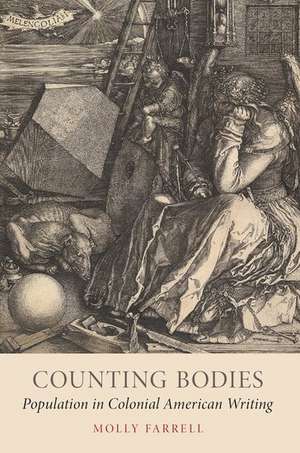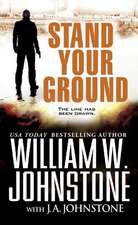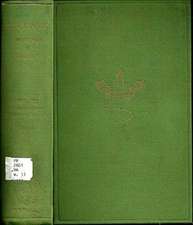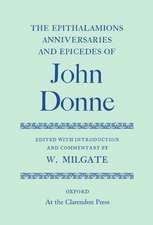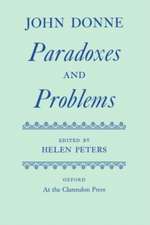Counting Bodies: Population in Colonial American Writing
Autor Molly Farrellen Limba Engleză Paperback – 31 ian 2019
| Toate formatele și edițiile | Preț | Express |
|---|---|---|
| Paperback (1) | 214.83 lei 31-37 zile | +150.87 lei 5-11 zile |
| Oxford University Press – 31 ian 2019 | 214.83 lei 31-37 zile | +150.87 lei 5-11 zile |
| Hardback (1) | 527.27 lei 31-37 zile | |
| Oxford University Press – 22 sep 2016 | 527.27 lei 31-37 zile |
Preț: 214.83 lei
Preț vechi: 245.36 lei
-12% Nou
Puncte Express: 322
Preț estimativ în valută:
41.11€ • 43.03$ • 34.01£
41.11€ • 43.03$ • 34.01£
Carte tipărită la comandă
Livrare economică 26 martie-01 aprilie
Livrare express 28 februarie-06 martie pentru 160.86 lei
Preluare comenzi: 021 569.72.76
Specificații
ISBN-13: 9780190934026
ISBN-10: 0190934026
Pagini: 296
Ilustrații: 26 illus.
Dimensiuni: 208 x 137 x 15 mm
Greutate: 0.36 kg
Editura: Oxford University Press
Colecția OUP USA
Locul publicării:New York, United States
ISBN-10: 0190934026
Pagini: 296
Ilustrații: 26 illus.
Dimensiuni: 208 x 137 x 15 mm
Greutate: 0.36 kg
Editura: Oxford University Press
Colecția OUP USA
Locul publicării:New York, United States
Recenzii
Farrell's Counting Bodies examines ways of counting people in the British Colonial Atlantic using forms of literature such as poetry, captivity narratives and travel writing and mortality bills. Farrell makes the claim that such texts, disparate as they may be, nonetheless offer insight into what she terms 'human accounting' in the seventeenth and eighteenth century colonial context.
I was continually excited by this book, and was especially struck by the way that Farrell's focus on the literary representation of population, and particularly on bodies that are difficult to count, might open up new possibilities for thinking about the complexity and variability of colonial American ideas of community. I'm persuaded, for example, that her book can help us think about colonial understandings of disability, another form of human categorization that was just beginning to emerge during this period. ... Just as important, however, is her careful attention to how writers in early America obstructed, disallowed, and resisted this kind of counting. Farrell's book is worth thinking with, and I'm eager to see how her methods and conclusions might further expand and enliven our understanding of what it meant to count and be counted in colonial communities.
Counting Bodies takes a very stimulating approach to its subject matter, and as an alternative route to understanding the emergence of population ideas it is to be welcomed.
If we take the counting of bodies today as an ordinary act of the state, Farrell invites us to consider a time when counting bodies was unusual and, further, takes us deep into the historical quandaries surrounding the counting of bodies. What is a countable body? Where does one body stop and another begin? In this book, Farrell brilliantly sounds the literary pre-history of the concept of population on colonial ground, illuminating the work that gender and race perform in the history of settler colonialism and European imperial expansion in early America.
By providing the reader with insight into the history of biopolitics before 'biopolitics' became the chief method of government, Farrell accomplishes something quite remarkable. Still more to her credit, she adds to the growing archive of early American texts by exploring the aesthetic dimension of literature, which doubled the perspective of these same procedures to expose the blindnesses induced by numerical representations of human life.
This is a marvellously rich reading of the conceptual logics associated with counting peoples. Treating colonialism, mortality, race and constitutionalism, Counting Bodies offers a compelling poetics of the enumerative imagination. It powerfully highlights the political implications of counting people
I was continually excited by this book, and was especially struck by the way that Farrell's focus on the literary representation of population, and particularly on bodies that are difficult to count, might open up new possibilities for thinking about the complexity and variability of colonial American ideas of community. I'm persuaded, for example, that her book can help us think about colonial understandings of disability, another form of human categorization that was just beginning to emerge during this period. ... Just as important, however, is her careful attention to how writers in early America obstructed, disallowed, and resisted this kind of counting. Farrell's book is worth thinking with, and I'm eager to see how her methods and conclusions might further expand and enliven our understanding of what it meant to count and be counted in colonial communities.
Counting Bodies takes a very stimulating approach to its subject matter, and as an alternative route to understanding the emergence of population ideas it is to be welcomed.
If we take the counting of bodies today as an ordinary act of the state, Farrell invites us to consider a time when counting bodies was unusual and, further, takes us deep into the historical quandaries surrounding the counting of bodies. What is a countable body? Where does one body stop and another begin? In this book, Farrell brilliantly sounds the literary pre-history of the concept of population on colonial ground, illuminating the work that gender and race perform in the history of settler colonialism and European imperial expansion in early America.
By providing the reader with insight into the history of biopolitics before 'biopolitics' became the chief method of government, Farrell accomplishes something quite remarkable. Still more to her credit, she adds to the growing archive of early American texts by exploring the aesthetic dimension of literature, which doubled the perspective of these same procedures to expose the blindnesses induced by numerical representations of human life.
This is a marvellously rich reading of the conceptual logics associated with counting peoples. Treating colonialism, mortality, race and constitutionalism, Counting Bodies offers a compelling poetics of the enumerative imagination. It powerfully highlights the political implications of counting people
Notă biografică
Molly Farrell is Associate Professor of English at Ohio State University.
